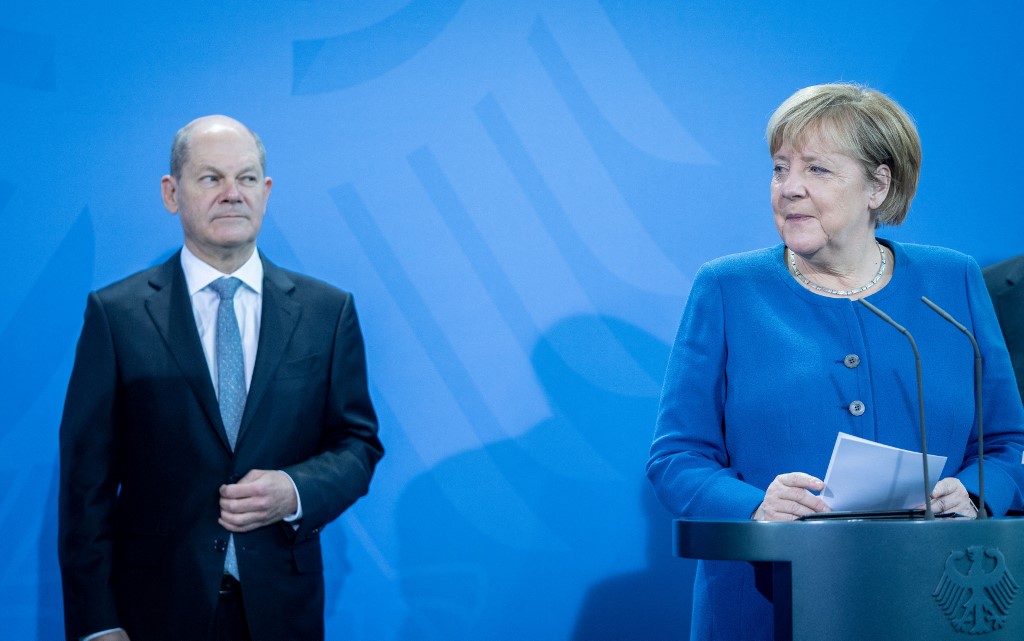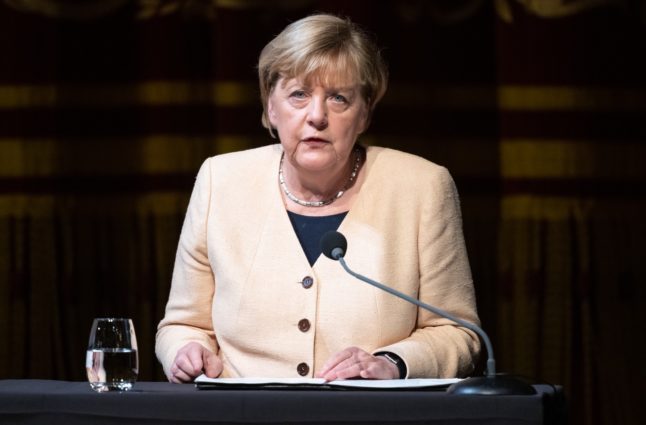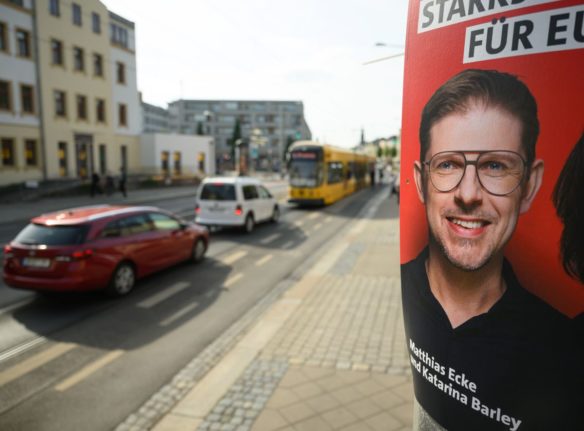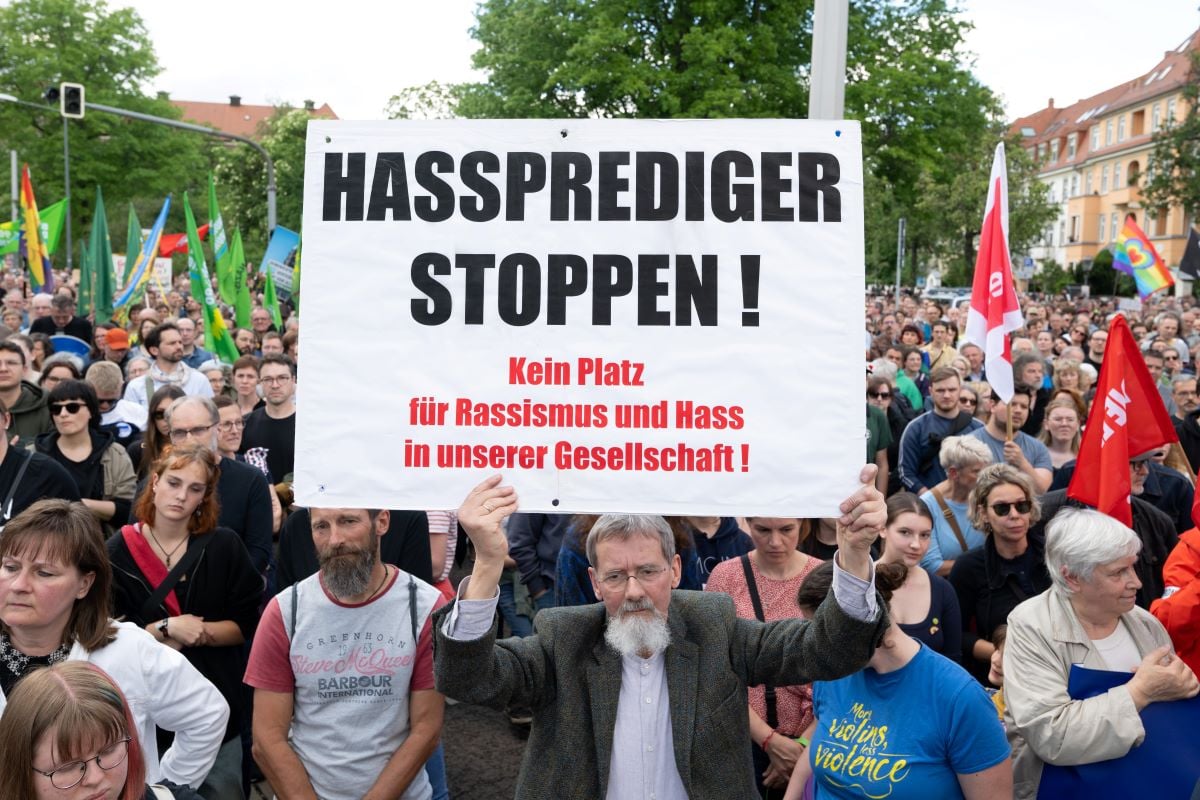The offices accorded to the former leader are in view of the Russian embassy, where since the Ukraine invasion in February Berliners regularly leave signs and flowers protesting the war.
Long called the world’s most powerful woman, Merkel these days has pulled back from the spotlight, working on her memoirs and enjoying the occasional television series, such as “The Crown”, which tells the story of Queen Elizabeth II’s turbulent decades on the throne.
But in many quarters the broad German support she once enjoyed as a staunch defender of Western liberal values has curdled.
“One year on, the world is in flames, Russia invaded Ukraine, gas and petrol prices are through the roof and Germany fears the winter,” wrote Der Spiegel magazine’s Alexander Osang, a longtime Merkel confidant.
“Angela Merkel went from role model to culprit, from crisis-manager to crisis-causer.”
Invitation to Bucha
Germany’s first female chancellor has been accused of placating Russian President Vladimir Putin in the name of realpolitik, while deepening Germany’s energy dependence on Moscow — not least by backing the Nord Stream 2 gas pipeline project even after Russia’s 2014 annexation of Crimea.
READ ALSO: Merkel says no regrets over Germany’s Russia gas deals
Hedwig Richter, modern history professor at Munich’s Bundeswehr University, said Merkel‘s loss of standing had been “exceptional”, representing a generation of political failings.
“Amorality is not the same thing as realpolitik,” Richter told AFP.
“The governments of the last 16 years thought it was realistic to place values such as human rights and climate protection last in politics. But now reality is striking back.”
Ukrainian President Volodymyr Zelensky has laid the blame at Merkel‘s feet, in particular for a decision at a 2008 NATO summit in Bucharest not to admit his country to the alliance.
In April, he offered her a barbed invitation to Bucha, the site of an alleged massacre of Ukrainian civilians, “to see what the policy of concessions to Russia has led to in 14 years”.
Looming energy shortages due to Russian retaliation for Western sanctions have also soured the mood against Merkel at home.
In the public debate, “Merkel was tied up with this war and certainly to blame for the missing gas”, said Nico Fried, who covered Merkel during all four of her terms, in Stern magazine.
“The question is what remains of Merkel after 16 years, whether her historical portrait is already fading before it was even really framed.”
‘Horribly neglected’
Just 23 percent of Germans would want Merkel back in power, according to a Civey institute poll in late November.
READ ALSO: ANALYSIS: Are Germans questioning Merkel’s legacy?

Richter said Merkel had “great achievements” including allowing in more than one million asylum seekers and standing as a beacon of “decency” and “democratic duty” when strongmen like Putin and Donald Trump were on the march.
But she said two key miscalculations would cast a long shadow.
“Firstly, the inability of the (German) republic to defend itself. And because this is closely linked to the fossil-fuel dependence on Russia, it threw a spotlight on destruction of the planet,” she said.
“The Merkel governments horribly neglected both these issues.”
Merkel, 68, has mounted a tentative counter-offensive, arguing that she acted in good conscience given the facts on the ground at the time.
She said she tried to use Nord Stream 2 as a bargaining chip to ensure Putin respected the 2015 Minsk accords aimed at stopping the fighting in Ukraine.
Merkel told Fried she pledged to US President Joe Biden last year that if Russia invaded Ukraine, the pipeline deal would be scrapped — a threat her successor Olaf Scholz made good on days before the war began.
Osang noted the irony that “Putin of all people, whom she has known so well and long, with all his tricks, lies, bragging” had muddied her reputation.
One of Merkel‘s lessons from the fall of the Berlin Wall in 1989 that it was “economic, more than democratic, deprivation” that led to the communist system’s collapse.
Osang said this had coloured her approach to trade with China and energy deals with Russia.
She said Scholz’s billions in spending to help Germans facing high gas prices were now justified.
“Not everyone is in a position to freeze for Ukraine,” she said.




 Please whitelist us to continue reading.
Please whitelist us to continue reading.
Member comments